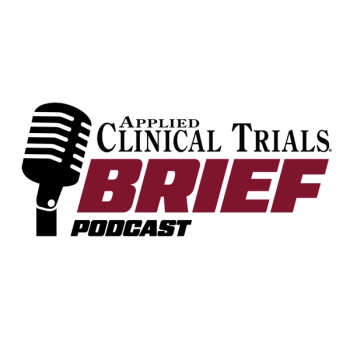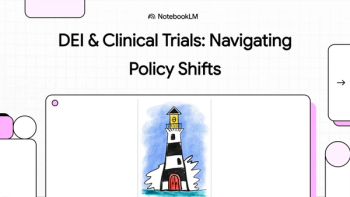
Strategic AI applications are helping life sciences teams overcome hidden bias, accelerate data discovery, and improve evidence integrity at the start of the pipeline.

Strategic AI applications are helping life sciences teams overcome hidden bias, accelerate data discovery, and improve evidence integrity at the start of the pipeline.

The FDA will now publish adverse event data from FAERS on a daily basis, marking a major step toward greater transparency in drug development.

Ampreloxetine is being developed to address the root cause of blood pressure instability in multiple system atrophy, aiming to improve patient outcomes and independence.

In this episode of the Applied Clinical Trials Brief, we recap our three most-viewed stories of the week—covering the Supreme Court’s decision to uphold NIH funding cuts tied to DEI, Phase II data showing oral VK2735 achieved over 12% weight loss, and Phase III results where Padcev plus Keytruda improved survival in muscle-invasive bladder cancer.

This explainer unpacks how recent US policy shifts are reshaping diversity, equity, and inclusion in clinical research, exploring the ripple effects on patients, sites, sponsors, and investigators.

Results from the first part of a Phase I/II trial (NCT06569823) showed that Z-1018 generated immune responses comparable to Shingrix, with a 100% antibody response rate and nearly 90% CD4⁺ T-cell response in patients with shingles.

The Supreme Court has ruled 5-4 to allow the Trump administration’s NIH funding cuts to continue, impacting more than 1,700 medical research grants in areas including heart disease, HIV/AIDS, Alzheimer’s disease, and mental health.

In this video interview, Caroline Potts, general manager of sites and patient services at Medical Research Network (MRN), explains why trial inclusivity requires shared responsibility across sponsors, CROs, sites, and advocacy groups.

A new exploratory study will evaluate the safety of Anktiva in patients with long COVID, with secondary and exploratory measures focused on immune cell activity and function.

The Phase II EvolvE trial (NCT05774184) confirmed barzolvolimab’s mechanism of action but showed no measurable improvement in dysphagia symptoms or esophageal inflammation in patients with eosinophilic esophagitis.

The Denali trial confirmed non-inferiority of NCX 470 to latanoprost in lowering intraocular pressure, with consistent efficacy, favorable safety, and supportive results from the earlier Mont Blanc study.

In this video interview, Caroline Potts, general manager of sites and patient services at Medical Research Network (MRN), highlights how listening to site insights and adopting flexible models such as temporary community-based clinics, can reduce patient travel burdens, improve enrollment efficiency, and stretch trial budgets further.

In this episode of the Applied Clinical Trials Brief, we spotlight a recent video interview in which Jon Walsh, founder and chief scientific officer of Unlearn.AI, shared how digital twins can improve trial efficiency, enhance patient-centric designs, align with regulatory expectations, and accelerate access to new therapies.

In this episode of the Applied Clinical Trials Brief, we spotlight a recent video interview in which Jon Walsh, founder and chief scientific officer of Unlearn.AI, shared how digital twins can improve trial efficiency, enhance patient-centric designs, align with regulatory expectations, and accelerate access to new therapies.

With approval to proceed, the Phase II trial (NCT06092034) of RP-A501 for Danon disease restarts under an optimized dosing and immunomodulatory strategy.

An overview of how recent funding reductions are reshaping clinical trial operations, from site sustainability and patient recruitment to trial design and long-term strategy.

In this video interview, Caroline Potts, general manager of sites and patient services at Medical Research Network (MRN), outlines how rigid budgeting and limited sponsor-site dialog often block innovative patient-centric solutions, stressing the need for more collaborative approaches to enable community engagement and flexible trial delivery.

In this video interview, Caroline Potts, general manager of sites and patient services at Medical Research Network (MRN), explains why site-enabled approaches such as in-home visits and community-based outreach should be offered from the start of a trial to reduce recruitment delays, support patient needs, and improve trial diversity.

The first patient has been dosed in a global Phase II study assessing Hepzato in combination with trifluridine-tipiracil and bevacizumab for liver-dominant metastatic colorectal cancer, with primary results expected by mid-2028.

Results from the Phase II OptiTROP-Lung01 trial (NCT05351788) showed that Sichuan Kelun-Biotech’s sac-TMT combined with tagitanlimab demonstrated promising anti-tumor activity and manageable safety as a first-line treatment for advanced or metastatic non-small cell lung cancer.

The Phase II VENTURE-Oral Dosing study of VK2735 met primary and secondary endpoints, with once-daily treatment leading to progressive weight reductions, high responder rates, and encouraging safety over 13 weeks.

In this video interview, Caroline Potts, general manager of sites and patient services at Medical Research Network (MRN), discusses the challenges of achieving true operational flexibility in clinical trials—highlighting how SOPs, staffing, and budget constraints often limit site adaptability and contribute to staff burnout.

Breakthrough Therapy Designation was based on results from the Phase II IDeate-Lung01 trial (NCT05280470), which demonstrated clinically meaningful benefits in patients with extensive-stage small cell lung cancer treated with ifinatamab deruxtecan.

The FDA has awarded Breakthrough Therapy Designation to izalontamab brengitecan, a potential first-in-class bispecific antibody-drug conjugate, for patients with EGFR-mutated advanced or metastatic non-small cell lung cancer who progressed after EGFR TKI and platinum chemotherapy, based on data from multiple clinical trials.

In this episode of the Applied Clinical Trials Brief, we recap our three most-viewed articles of the week—featuring updated cost estimates for trial delays, the benefits of a hybrid approach to site payments, and strategies for keeping complex protocols on track.

Ron Lanton, partner, Lanton Law, explains how shifts in policy and government guidance could reduce public participation and complicate the design and recruitment of future vaccine trials.

In the Phase II STARLIGHT trial, MCO-010 gene therapy improved visual acuity in Stargardt disease patients, with some achieving early and sustained gains and no serious adverse events, paving the way for a Phase III study.

The trial’s first patient has been treated to assess the BREATHE Airway Scaffold, which was developed to enhance breathing and daily functioning in patients with severe emphysema.

A 2025 survey highlights growing momentum for multi-indication drug development, with opportunities in innovative trial design, targeted patient selection, and real-world evidence to speed label expansion.

In this video interview, Meri Beckwith, Co-CEO of Lindus Health, shares practical ways clinical teams can strengthen trial protocols for expedited programs—such as incorporating control groups where possible, leveraging synthetic and real-world data, and adopting adaptive trial designs to reduce regulatory risk.